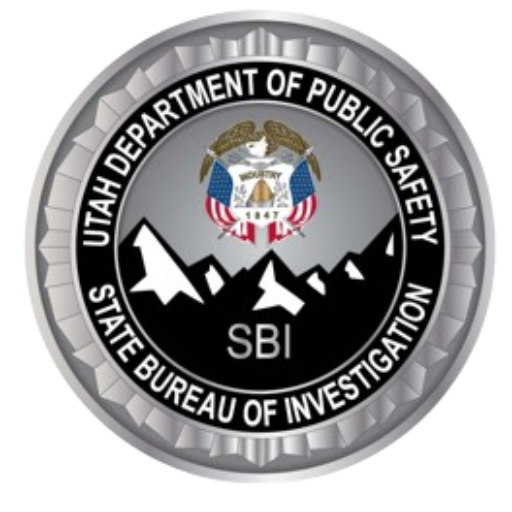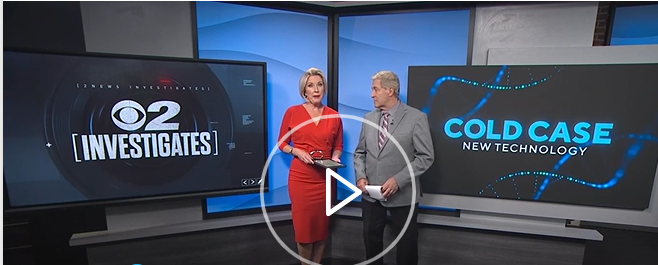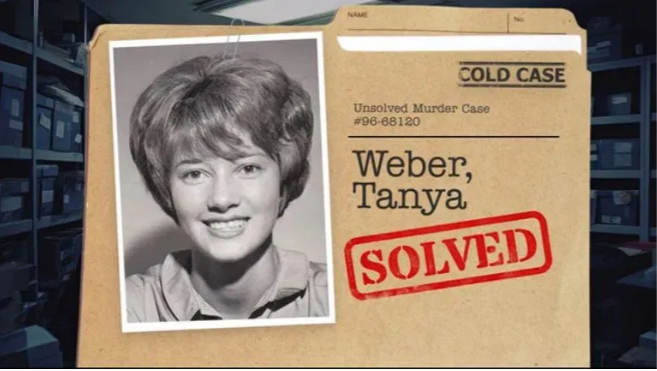
Cold Cases
State Bureau of Investigation
SBI's Cold Case Investigations Unit is united in a shared mission: to give a voice to the victims and bring peace to their families. Agents apply collective expertise, experience and 21st-century investigative techniques, with a special focus on modern DNA analysis, to solve cold cases and deliver long-awaited answers.
Cold Cases in the News

Cold Case Database
The Bureau of Criminal Identification hosts Utah’s Cold Case Database, where Utah law enforcement collaborates to enter all cold cases into a single repository available to the public to search.

Cold Case Tip
If you have information that may assist in a cold case investigation, please report to the SIAC. The SIAC works with the Utah Cold Case Review Board to assist in solving Cold cases in Utah and nationwide
Resources
Resources
Utah Cold Case Database: Rosie's Bill
In the 2018 Utah Legislative General Session, Senate Bill 160 was passed, creating the Utah Cold Case Database. The bill was nicknamed "Rosie's Bill" after 6-year-old Rosie Tapia, who was kidnapped and murdered in 1995. Her case, which is almost 29 years old, remains unsolved. The bill authorized the Utah Department of Public Safety (DPS) to develop and maintain a secure database of cold cases and to hire an intelligence analyst to manage it.
The Cold Case Database
Beginning July 1, 2018, all Utah law enforcement agencies were required to enter their cold cases—including Unsolved Homicides, Missing Persons, and Unidentified Human Remains (UHR)—into the secure database. This system serves as a confidential clearinghouse, allowing agencies to view and research cases for potential leads or to connect cases with similar circumstances.
The database also provides a publicly viewable website hosted by the DPS Bureau of Criminal Identification (BCI). This public portal, which does not contain sensitive investigative details, allows the public to view case information and submit tips. Go to the website.
As of April 27, 2024, there were 429 cases in the database: 253 Unsolved Homicides, 130 Missing Persons, and 46 Unidentified Human Remains (UHR). The database has received 350 cold case tips from the public, which are triaged and routed to the appropriate investigative agency.
SIAC and Cold Case Management
The database is housed at the Statewide Information and Analysis Center (SIAC) in Taylorsville, where analyst Kathy Mackay manages the program. She works with all 150+ law enforcement agencies in Utah to ensure their cases are entered into the database and, with agency approval, are made publicly available.
Ms. Mackay provides case support and offers training to agencies on how to enter cases and conduct research within the database.
Collaboration and Investigative Support
The SIAC offers case support to further investigations and collaborates with various organizations to help solve cold cases, including:
-
The National Missing and Unidentified Persons System (NamUs)
-
The FBI’s Violent Criminal Apprehension Program (ViCAP)
-
The National Center for Missing & Exploited Children (NCMEC)
-
The Doe Network
Particular emphasis is placed on Unsolved Sexually Motivated Homicides, supported through the Utah Sexual Assault Kit Initiative (SAKI), and Unidentified Human Remains (UHR) cases housed at the Utah Office of Medical Examiner. SIAC also oversees the Utah Cold Case Review Board, which meets monthly to assist agencies with unsolved cases.
A Nuance of Cold Case Work
A key part of cold case work is the initial identification of cases that may have been lost over time. Kathy Mackay scours decades of newspaper archives to locate homicides, missing persons, and unidentified bodies across the state, some of which may lack official records. Changes in records management, from paper to digital, as well as personnel turnover, have left some cases without reports or evidence. These historical newspaper accounts can provide critical details that warrant a fresh look.
Public records searches of obituaries, marriage and death certificates, and tips from the public all play a vital role in cases being reopened and solved with modern technology.
Contact the SIAC
If you have information related to a cold case, you can reach the SIAC directly.
-
Phone: 801-965-3838
-
Email: [email protected]
ViCAP - Violent Criminal Apprehension Program:
The Violent Criminal Apprehension Program is a unit of the United States Federal Bureau of Investigation responsible for the analysis of serial violent and sexual crimes, based in the Critical Incident Response Group's National Center for the Analysis of Violent Crime. ViCAP maintains the largest investigative repository of major violent crime cases in the U.S. It is designed to collect and analyze information about homicides, sexual assaults, missing persons, child abductions and other violent crimes involving unidentified human remains.
DPS is Utah’s “hub” agency for ViCAP and supports local agencies with entry of criteria cases into the ViCAP Web National Crime Database. Cold Case Crime Analyst Kathy Mackay is ViCAP certified and liaisons with agencies to enter cases. DPS/SBI hosted a regional ViCAP training presentation in March, 2022. ViCAP is an investigative tool where intimate case details can be viewed/shared confidentially amongst law enforcement professionals. Law Enforcement sensitive bulletins are produced regionally and nationally.
A notable increase in ViCAP entries from Utah has been the average of 22.8 per year since the state’s cold case database launched in 2018. Compare that to the average of 5.5 cases per year entered for the 33 years before that. The DOJ requires ViCAP entry to access federal grant funds. SBI cold case investigators consistently engage local agencies reminding them to enter cases and offering assistance. 100% of the cases Utah DPS has supported Advanced DNA Testing on are in ViCAP. Get more information on the FBI's website.
Utah Sexual Assault Kit Initiative (SAKI)
The Utah Sexual Assault Kit Initiative (SAKI) is a multi-agency effort aimed at creating a victim-centered, trauma-informed approach to sexual assault investigations. The program focuses on holding offenders accountable, providing crucial services and support to victims, and creating sustainable process improvements to prevent the future accumulation of sexual assault kits.
A History of Progress and Grants
2015: The Utah Commission on Criminal and Juvenile Justice (CCJJ) received the first SAKI grant from the Department of Justice to support the testing of previously unsubmitted sexual assault kits in Salt Lake County. The Utah Department of Public Safety (DPS), through the Utah Bureau of Forensic Services (UBFS), began outsourcing the testing of more than 1,700 kits to find investigative leads using the FBI’s Combined DNA Index System (CODIS).
2017: Following the success of the initial grant, a second SAKI grant was awarded to expand testing, agency support, and victim resources statewide. This grant allowed the partnership with DPS to grow, funding a victim advocate and two investigators at the State Bureau of Investigation (SBI) to support over 150 law enforcement agencies. The total inventory of backlogged kits grew to nearly 5,000. In the same year, the Utah Legislature passed HB200, mandating sweeping changes that included required kit submission and a statewide kit tracking system, which were implemented on July 1, 2018. All backlogged sexual assault kits were tested by October of 2020.
2020: The DPS was awarded its own SAKI grant to ensure the uninterrupted continuation of investigative and prosecution support. This funding also included Victim Therapeutic Treatment Funds ($2,500 per victim), the Victim Information Line, and intelligence support from the Statewide Information & Analysis Center (SIAC). A particularly exciting aspect of this grant was the addition of Advanced DNA Testing funds, which allowed for the use of new cutting-edge technologies, including Investigative Genetic Genealogy. Unsolved Sexually Motivated Homicides (48) were added to the inventory of eligible cases, making over 5,000 cases eligible for advanced testing.
Ongoing Work and Community Outreach
The SAKI team travels the state to attend local Sexual Assault Response Team (SART) meetings and provide training on best practices to all disciplines in the criminal justice process. The team trains thousands of responders each year, both in-person and via their monthly DPS/SBI Sex Crimes Trainings on Zoom. The SAKI team also participates on the state's Cold Case Review Board (CCRB), fostering relationships with agencies across Utah.
Outreach and support for rural counties remain a point of emphasis under the 2020 SAKI grant, ensuring a statewide effort that continues to this day. Multiple investigations and prosecutions are currently ongoing.
Resources and Contact Information
If you have questions about the Utah SAKI program, or need more information, please use the following resources:
-
Website:
https://www.sakitta.org/utah/ -
Phone: SBI Major Crimes Lt. Chad Jensen at 801-965-4747
For additional resources on cold cases, you can also visit the Utah Department of Public Safety website:
-
Cold Cases:
https://bci.utah.gov/coldcases/
The National Center for Missing & Exploited Children (NCMEC) is a private, non-profit organization established in 1984 by the United States Congress.
-
Help find missing children: This includes cases of parental abduction, child abduction by strangers, and runaways.
NCMEC disseminates posters, manages the secondary distribution of AMBER Alerts, and provides case management services to assist in recovery efforts. -
Reduce child sexual exploitation: They work to deter and combat child sexual exploitation, including online enticement and the production/distribution of child sexual abuse material (CSAM).
-
Prevent child victimization: NCMEC works with families, victims, private industry, law enforcement, and the public to raise awareness and provide resources to prevent child abductions and exploitation.
Key functions and services of NCMEC include:
-
24-Hour Hotline (1-800-THE-LOST): This toll-free number allows the public to report information about missing children.
-
Cyber Tipline: This is a centralized reporting system for suspected child sexual exploitation.
NCMEC reviews these reports and shares them with appropriate law enforcement agencies. -
Support for Law Enforcement: NCMEC provides resources, technical assistance, and training to law enforcement agencies at federal, state, and local levels.
-
Public Awareness and Education: They develop and distribute educational resources, programs, and materials to increase awareness of missing and exploited child issues and promote safety.
-
Family Advocacy and Survivor Services: NCMEC provides support and referral resources for mental health assistance and crisis support to families and survivors.
-
International Collaboration: NCMEC has a global network and works with other countries to combat child abduction and exploitation worldwide
NCMEC was founded due to the growing frustration with the lack of resources and national coordination in cases of missing children, notably spurred by the abductions of Adam Walsh (1981) and Etan Patz (1979). It is largely funded by the United States Department of Justice and serves as a vital clearinghouse and resource for protecting children.




